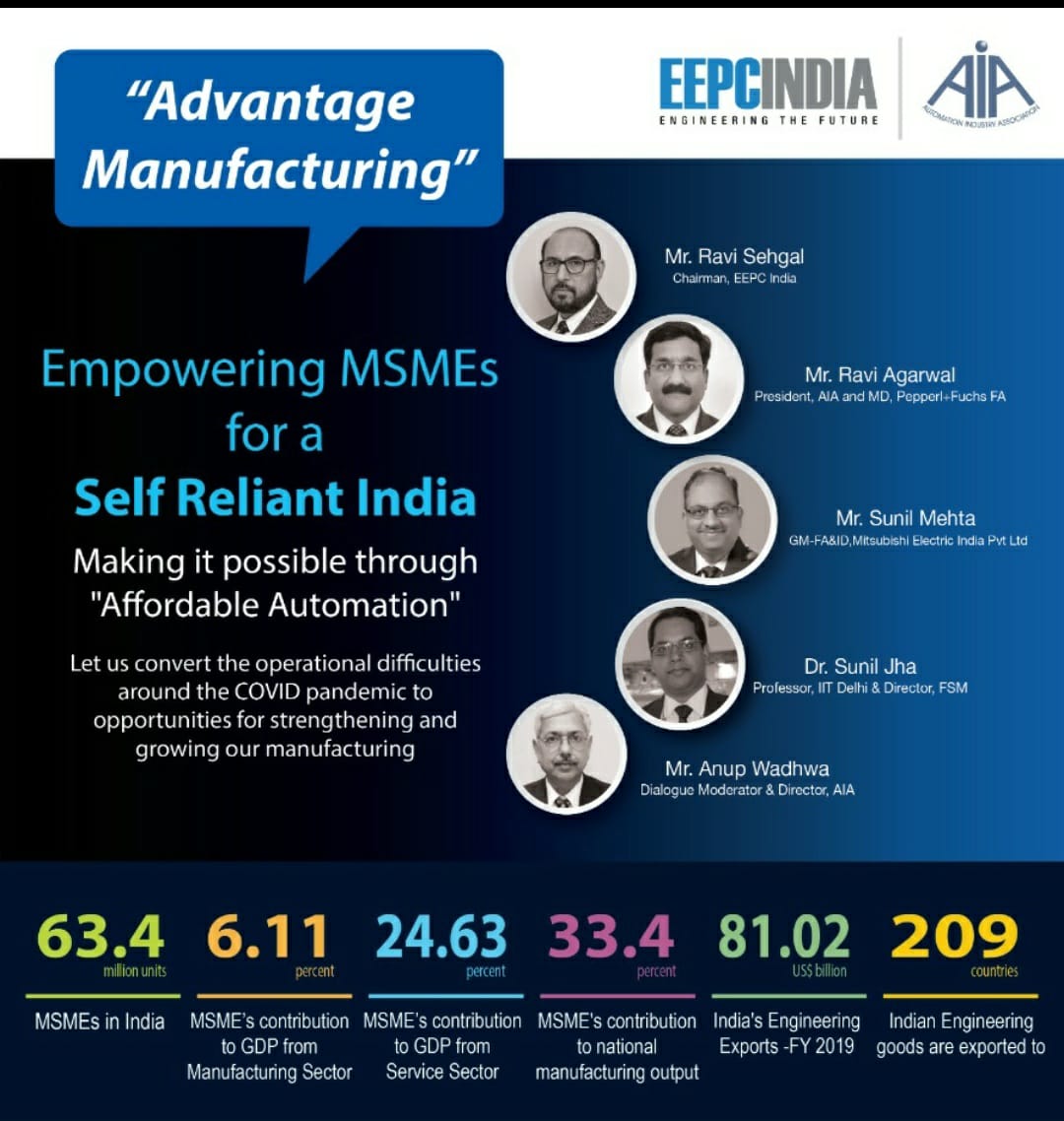EEPC India in association with AIA and its not-for-profit JV with IIT Delhi, the Foundation for Smart Manufacturing (FSM), organized a panel discussion on Leveraging Automation for recovery of MSMEs. In the wake of COVID 19, the engineering MSMEs have been facing immense challenges in terms of loss of productivity and revised social norms being implemented across all economic activities. In view of this, automation technologies are emerging as a viable and long-term solution for MSMEs.

Mr Ravi Sehgal, Chairman EEPC India, highlighted the fact that, “75% of Indian MSMEs are still at the stage 2.0 of the technology stand point. The EEPC India through its Tech Cell and its engagements with industry through webinars is educating about the need for changing the thinking process about health & hygiene and challenges of capacity building. He said this is the opportune time to adopt automation at appropriate levels, and meet competition from other emerging nations such as Thailand, Vietnam and Turkey etc. In view of this, we must address various apprehensions among MSMEs like cost associated with automation, and superior skill set,” he said.
Mr Anup Wadhwa, Director, Automation Industry Association said that Automation brings possibility for changes to the entire manufacturing processes and this is the right time for introducing the change. He said, “The goal of Smart Manufacturing is to increase the overall economic potential and increase agility by increasing customized production without quality loss and wastages.” Mr Ravi Agarwal, President, AIA further said: “Crisis times helps societies to mature, and the need of the hour is to adopt digitization.”
The session also highlighted many affordable automation technologies for MSMEs and post COVID manufacturing scenario. Mr Sunil Mehta, GM, FA&ID, Mitsubishi Electric India Pvt Ltd apprised of the various technologies in the post COVID scenario such as Micro modular PLCs, Energy Meters, and HMIs for remote operations. Prof. Sunil Jha, Director, Foundation for Smart Manufacturing, echoed: “Today there are various open source options for services to bring down the overall cost. He also emphasized that human resource skilling and deployment is among the most important aspect, and thus the businesses can achieve twin benefits of empowering the internal manpower through upskilling and save on external manpower cost.”
The session also highlighted that if the industry ecosystem came forward together to adopt automation and Industry 4.0 under the existing Samarth Udyog scheme of Department of Heavy Industry, financial and technical assistance can be extended by the Foundation. EEPC and AIA agreed to engage further and drive this together.